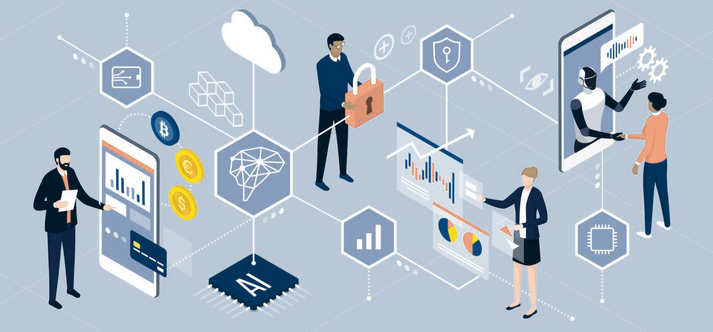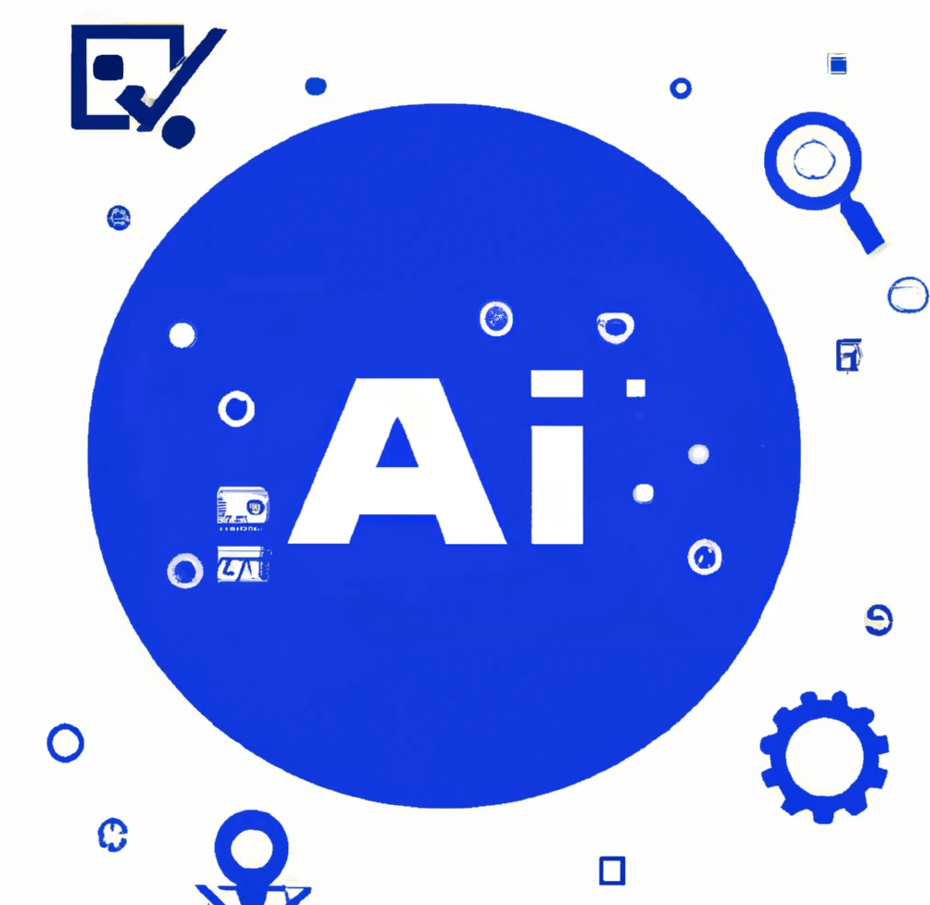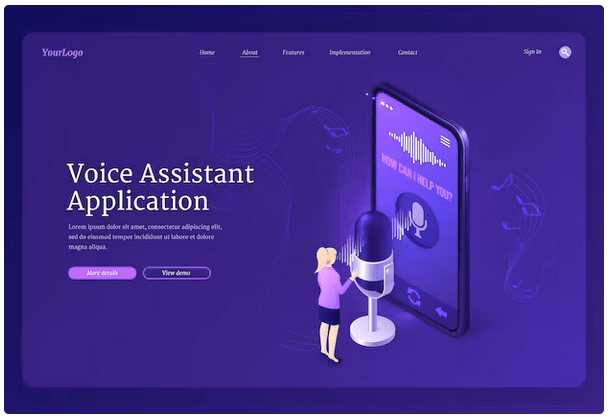
How AI tools are helping to develop apps and software in less than 25 minutes

In the fast-paced world of technology, time is of the essence. Developers and businesses are constantly seeking ways to speed up the app and software development process without compromising quality. This need for efficiency has led to the integration of Artificial Intelligence (AI) into the software development life cycle. AI tools are revolutionizing the industry by significantly reducing the time required to develop applications and software. In this comprehensive guide, we will explore how AI tools are helping to develop apps and software in less duration.
How AI tools are helping to develop apps and software
Artificial Intelligence, specifically Machine Learning, has found its way into various industries, and software development is no exception. AI is proving to be a game-changer in terms of accelerating development, automating repetitive tasks, and enhancing the overall quality of software. But how exactly is AI making this happen?
1. Code Generation and Auto-Completion
One of the most significant ways AI is speeding up development is through code generation and auto-completion. Developers can now use AI-powered tools to assist them in writing code. These tools analyze the developer’s requirements and generate the necessary code, significantly reducing coding time. This is particularly useful for routine and repetitive tasks.
2. Predictive Analytics
AI can analyze large datasets to make predictions about the behavior and performance of an application. This allows developers to make informed decisions about how to optimize and improve the software. Predictive analytics can also identify potential issues early in the development process, saving time and resources in the long run.
3. Automated Testing
Testing is a critical part of software development, but it can be time-consuming. AI-driven testing tools can automatically generate test cases, execute tests, and report results. This not only saves time but also improves the accuracy and coverage of testing.
4. Bug Identification and Resolution
AI tools can automatically identify and even resolve common bugs and issues in the code. This reduces the time developers spend debugging and allows them to focus on more complex aspects of development.
5. Natural Language Interfaces
AI-powered natural language interfaces are making it easier for developers to interact with development environments. This streamlines the development process and allows for more rapid prototyping.
Practical Applications of AI in Rapid Development
Let’s take a closer look at the practical applications of AI tools that are helping to develop apps and software in less duration:
1. Low-Code and No-Code Development Platforms
Low-code and no-code platforms are becoming increasingly popular. These platforms allow developers and even non-developers to build applications with minimal hand-coding. AI-driven features handle many of the technical details, enabling rapid development.
2. AI-Powered Development Environments
AI-driven development environments, such as those offered by Microsoft and GitHub, use machine learning to suggest code completions, catch coding errors, and even offer performance optimizations. These tools are particularly useful for speeding up the coding process.
3. Automated Documentation
AI tools can automatically generate documentation for software projects, saving developers the time and effort it takes to write extensive documentation manually.
4. AI-Enhanced Project Management
AI is also being used to optimize project management. Predictive analytics and machine learning can help project managers identify potential delays and bottlenecks in the development process, allowing for proactive adjustments.
Real-World Examples
Let’s delve into real-world examples of how AI tools are transforming the software development landscape:
1. Google’s AutoML
Google’s AutoML is a prime example of how AI is making it easier to develop machine learning models. It automates many of the complex tasks involved in machine learning, making it accessible to a broader range of developers.
2. IBM’s Watson
IBM’s Watson is an AI-powered platform that offers a range of development tools, from chatbot creation to data analysis. These tools expedite the development of applications that require natural language processing and machine learning.
3. GitHub Copilot
GitHub Copilot, powered by OpenAI’s GPT-3, assists developers by suggesting code completions and providing documentation. It’s like having an AI coding partner that can significantly reduce development time.
Benefits and Challenges
While AI tools have the potential to revolutionize software development, it’s essential to consider both the benefits and challenges they bring:
Benefits:
- Faster Development: AI accelerates the development process, reducing time-to-market.
- Improved Quality: Automated testing, bug identification, and code generation enhance the quality of software.
- Efficient Resource Allocation: Predictive analytics help allocate resources more efficiently.
Challenges:
- Skill Requirement: Developers need to acquire AI-related skills to use these tools effectively.
- Data Privacy: Handling sensitive data with AI tools requires strict adherence to data privacy regulations.
- Ethical Considerations: AI decisions, such as in automated testing, can have ethical implications that need to be addressed.
The Future of AI in Software Development
The future of AI in software development looks promising. As AI tools become more sophisticated and accessible, we can expect:
- Greater Automation: AI will take over even more routine tasks, leaving developers to focus on creative and strategic aspects of development.
- Enhanced Collaboration: Developers will work alongside AI tools, creating a symbiotic relationship that optimizes the development process.
- AI-Driven Innovation: AI will be at the forefront of software innovation, helping to develop cutting-edge applications more rapidly.
Conclusion
AI tools are undeniably revolutionizing the software development landscape, making it possible to develop apps and software more efficiently than ever before. While challenges exist, the benefits of accelerated development, improved quality, and efficient resource allocation are propelling the industry forward. As AI continues to evolve, we can look forward to a future where software development is faster, more accessible, and increasingly innovative.
Frequently Asked Questions
- What are AI tools in software development?
- AI tools in software development refer to applications and platforms that leverage artificial intelligence and machine learning to automate tasks, optimize processes, and enhance the development of applications and software.
- How do AI tools speed up the software development process?
- AI tools accelerate software development by automating coding, suggesting code completions, performing automated testing, identifying and resolving bugs, and providing predictive analytics for project management.
- What is code generation in software development with AI tools?
- Code generation involves AI tools generating code automatically based on a developer’s requirements or a description of the desired functionality. This significantly reduces the time required for coding.
- Can AI tools be used for low-code or no-code development?
- Yes, AI tools are increasingly used in low-code and no-code development platforms. These platforms empower developers and non-developers to create applications with minimal hand-coding, thanks to AI-driven features.
- What are some real-world examples of AI tools in software development?
- Examples include Google’s AutoML, IBM’s Watson, and GitHub Copilot. AutoML simplifies machine learning model development, Watson offers a range of development tools, and GitHub Copilot suggests code completions and provides documentation.
- What are the benefits and challenges of using AI tools in software development?
- Benefits include faster development, improved quality, and efficient resource allocation. Challenges encompass the need for AI-related skills, data privacy concerns, and ethical considerations in decision-making.
- How is AI expected to shape the future of software development?
- The future of AI in software development promises greater automation, enhanced collaboration between developers and AI tools, and AI-driven innovation, leading to faster, more accessible, and innovative software development.
- Is AI suitable for all types of software development projects?
- AI can be applied to various software development projects, but its suitability depends on the project’s complexity, objectives, and the availability of data. It may not be necessary for all projects.
- What skills do developers need to effectively use AI tools in software development?
- Developers should have skills in data analysis, machine learning, and a strong understanding of AI concepts to use AI tools effectively in software development.
- Are there any privacy and security concerns associated with using AI tools in software development?
- Yes, handling sensitive data with AI tools requires strict adherence to data privacy regulations. Developers should be aware of potential security vulnerabilities when integrating AI components into software.



